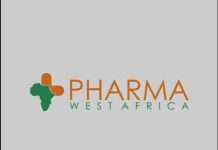The Partnership for Research on Ebola Virus in Liberia (PREVAIL), a U.S.-Liberia joint Clinical Research Partnership, today announced the opening of PREVAIL IV, a treatment trial for men who have survived Ebola virus disease (EVD) but continue to have evidence of Ebola virus genetic material, RNA, in their semen. The trial is sponsored by the National Institute of Allergy and Infectious Diseases (NIAID), part of the National Institutes of Health, in partnership with the Ministry of Health of Liberia and the pharmaceutical company Gilead Sciences. The six-month study will enroll 60 to 120 EVD survivors whose semen has evidence of Ebola virus RNA prior to their enrollment. Participants in the double-blind trial will receive either investigational drug GS-5734, manufactured by Gilead Sciences, Inc., or a placebo.
Liberia was one of the hardest hit countries during the Ebola epidemic of 2014-15. On June 9, the World Health Organization declared the end of the most recent outbreak in Liberia and the country entered a 90-day period of heightened surveillance to ensure that any new cases are quickly identified and contained. “We know that traces of Ebola virus can sometimes remain in a recovered person’s body and can initiate a new bout of illness in the survivor or be passed onto others, which could start a new chain of infection in the community,” said NIAID Director Anthony S. Fauci, M.D. “The goal of the PREVAIL IV trial is to see if the experimental drug can eliminate the traces of Ebola virus from semen in men who have survived Ebola infection. It is anticipated that this would decrease the risk of passing the virus to their sexual partners. If so, the drug would be another weapon in our arsenal against Ebola virus disease.”
Upon enrollment, volunteers in the new trial will receive the study drug (or placebo) once a day for five days and will provide multiple blood and semen samples during this period. All volunteers must have previously enrolled in the PREVAIL III Ebola Natural History study for survivors and their household and sexual contacts. Prior to enrollment, volunteers will be tested for normal kidney and liver function. Volunteers will be seen at the clinic 10 times in the first month and then once a month for the remaining five months. Volunteers will provide blood and semen samples throughout the trial period. Investigators will test the semen samples to see if Ebola viral RNA can continue to be detected. All volunteers will be counseled to use condoms during the course of the trial.
GS-5734 has previously been tested for safety in healthy men and women in the United States. In that study, no serious side effects of the experimental drug were detected, but some volunteers experienced a rise and then a fall in liver enzyme levels. This information has been incorporated into the new trial by the study investigators, who will be monitoring volunteers for kidney and liver function during the trial. In non-human primates infected experimentally with a lethal dose of Ebola virus, GS-5734 has been shown to reduce viremia and to improve survival.
The co-principal investigators of the PREVAIL IV trial are Dehkontee Gayedyu-Dennis, M.D., site physician at Duport Road PREVAIL site, Monrovia; Elizabeth Higgs, M.D., NIAID; and William A. Fischer II, M.D., of the University of North Carolina School of Medicine.
Additional information about PREVAIL IV is available at ClinicalTrials.gov using the identifier NCT 02818582.
Participants for the Prevail IV study will be recruited from the PREVAIL III study of Ebola survivors and their close contacts which opened in June 2015. Prevail III aims to better understand the long-term consequences of Ebola virus disease, Ebola virus persistence and transmission risk to close contacts, and includes components that assess mental health, eye health and other issues in survivors. Additional details about PREVAIL III are available at ClinicalTrials.gov using the identifier NCT02431923.
NIAID conducts and supports research — at NIH, throughout the United States, and worldwide — to study the causes of infectious and immune-mediated diseases, and to develop better means of preventing, diagnosing and treating these illnesses. News releases, fact sheets and other NIAID-related materials are available on the NIAID website.
About the National Institutes of Health (NIH): NIH, the nation’s medical research agency, includes 27 Institutes and Centers and is a component of the U.S. Department of Health and Human Services. NIH is the primary federal agency conducting and supporting basic, clinical, and translational medical research, and is investigating the causes, treatments, and cures for both common and rare diseases. For more information about NIH and its programs, visit www.nih.gov.
NIH…Turning Discovery Into Health®












